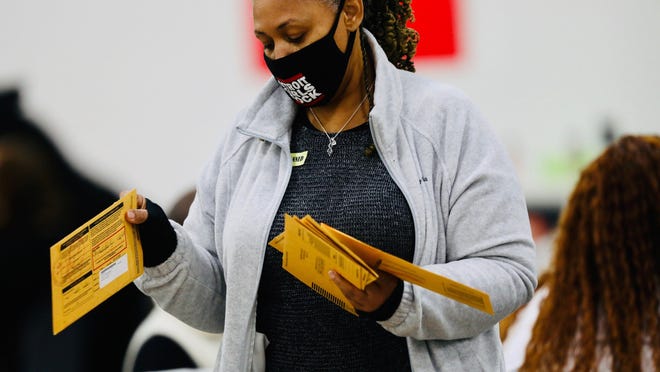Arizona, New Jersey, South Dakota and Montana all passed legislation Tuesday permitting the possession of weed by adults, which means 15 states have legalized recreational weed or voted to legalize it.
South Dakota and Mississippi passed initiatives to allow medical marijuana, which means 36 states permit the legal distribution of medical weed, according to a tally by NORML, a nonprofit marijuana public advocacy group.
Legal weed supporters argue that the enforcement of bans does more harm than the drug itself, swallowing up community resources while disproportionately affecting people of color.
Opponents caution against the widespread use and accessibility that could come with legalization, suggesting it could lead to unforeseen health effects or have a negative effect on young people.
Despite the slew of passages, marijuana stocks fell Wednesday morning, probably a result of the uncertainty of the presidential and congressional elections.
Oregon, which is already home to legal marijuana use, further relaxed drug laws, becoming the first state to decriminalize the possession of small amounts of cocaine, heroin and methamphetamine. Proponents said the removal of punishments for nonviolent drug offenses and increased social services could help those dealing with substance abuse get their life back on track.
Now that weed is legal in four more states, when will residents be able to buy it? Here's what to know about weed in Arizona, New Jersey, South Dakota and Montana.
Arizona
Proposition 207, which passed Tuesday, would legalize possession of as much as an ounce of marijuana for adults 21 and older and set up a licensing system for retail sales of the drug, starting with the medical marijuana dispensaries operating in the state.
Sales could begin in March under the measure.
Once the election results are made official Nov. 30, possessing and growing as many as six plants at home will be legal for adults.
The measure would allow people convicted of marijuana crimes, such as the felony charge for possession, to have their records expunged by the courts.
It would establish special "social equity" licenses for communities historically disenfranchised by marijuana laws.
More on weed in Arizona:Voters approve Proposition 207, making recreational marijuana legal in state
New Jersey
In a ballot question Tuesday, voters overwhelmingly backed the possession, sale and use of marijuana for adults 21 and over.
But the drug will remain illegal until legislators pass a bill decriminalizing it.
Before marijuana users can light up at home without fear of arrest, the Legislature and Cannabis Regulatory Commission must pass either enabling legislation – which would formally direct law enforcement to stop arresting people for marijuana possession – or a decriminalization bill.
An alternative, which could happen shortly after results are certified, is a directive from the state attorney general's office ordering police to stop arresting people under marijuana laws.
New Jersey Attorney General Gurbir Grewal said Wednesday that there would be no formal change to enforcement of the state's marijuana laws until the Legislature and Cannabis Regulatory Commission passes legislationdecriminalizing the drug.
More on weed in New Jersey:Can you be arrested for smoking marijuana, now that weed is 'legal'? Here's what we know
South Dakota
The narrow passage of Constitutional Amendment A legalizes the possession, transportation and distribution of up to an ounce of marijuana for adults 21 and over. The state resoundingly adopted medical marijuana.
Based on state law governing the process by which ballot questions take effect, voter-approved cannabis rules won't become law until July 1, 2021.
More on weed in South Dakota:South Dakotans vote to legalize pot. Now what?
Montana
A pair of complementary ballot initiatives that would legalize recreational marijuana use for adults were approved on Tuesday's ballot, The Associated Press reported.
I-190 creates rules for marijuana use, including a 20% tax and the option for individual counties to prohibit dispensaries. CI-118 amended the state constitution to allow Montana to set the minimum buying age at 21.
Both measures needed to pass for recreational use to become legal.
Possession and use of weed would be legal starting Jan. 1, 2021, the bill says, and recreational sales are to begin in January 2022, The Associated Press reported.
More on weed in Montana:Two ballot measures to legalize marijuana OK'd
Contributing: Ryan Randazzo, The Arizona Republic; Mike Davis, The Asbury Park Press; Joe Sneve, Sioux Falls Argus Leader; Great Falls Tribune staff
